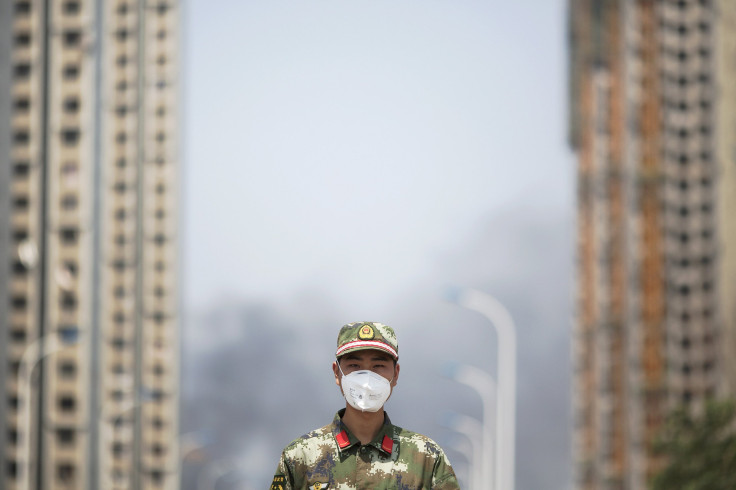Tianjin Explosions: Disasters In China Prompt Wave Of Media Censorship

As Chinese rescue workers and emergency services raced to respond to the deadly explosions that rocked the port city of Tianjin Wednesday, another group of Chinese officials, with a very different purpose, also sprang into action: the country's censors and security officials, intent on limiting coverage of the disaster by conventional media outlets and social media.
Authorities in Tianjin have been attempting to tightly control information about the disaster. Journalists and nonessential personnel were being kept six miles away from the scene of the blasts, the Los Angeles Times reported. In addition, a CNN correspondent reporting live from outside a hospital was seen being accosted by security officials live on air.
In the video below [the confrontation starts around 1:48] reporter Will Ripley is confronted by several men, demanding that he end his broadcast, and shouting “stop recording” in Chinese. His feed is then cut, and the studio anchor comments that such incidents have “happened many times over the years in any number of stories in China.”
In addition, local Chinese outlets reportedly had trouble being able to report on the incident. One journalist who took photographs inside a Tianjin hospital was threatened by security guards and told to delete the images, the Hong Kong Free Press reported. Local station Tianjin Television was reportedly airing a Korean soap opera 8 hours after the incident, as reporters waited for permission to start covering the story.
Media censorship of this kind is not new in China, particularly when it comes to coverage of national disasters. After a 2011 train crash that left 39 people dead and over 200 injured, propaganda directives issued by Chinese authorities leaked online, which showed that reporters were warned not to run investigative reports or commentary, but rather focus on "stories that are extremely moving, for example people donating blood and taxi drivers not accepting fares," the BBC reported.
"From now on, the Wenzhou train accident should be reported along the theme of 'major love in the face of major disaster'," the directives added. The strategy ultimately backfired, prompting online anger from citizens who accused the authorities of “arrogance.”
In the world of social media, users of Sina Weibo, China's hugely popular version of Twitter, were reporting Thursday that some of their posts about the Tianjin disaster were being censored or deleted, according to the Associated Press. In addition, the number of searchable posts on the disaster fluctuated, in a sign that authorities were manipulating or placing limits on the number of posts.
A 2013 investigation by ProPublica, found that Chinese authorities deleted about 5 percent of posts from a selection of Weibo accounts it monitored. It also cited the example of one Weibo user who posted information critical of a named government official, and received a direct message threatening him and his family. Deleted posts often involve comments about corrupt officials, the 1989 Tiananmen Square massacre or, more recently, the Occupy Central movement in Hong Kong.
Just this month, Chinese authorities announced plans to embed police censors in technology firms operating in the country, to prevent the spread of “online rumors,” and allow the government to exert greater control over the Internet in the country.
© Copyright IBTimes 2024. All rights reserved.






















